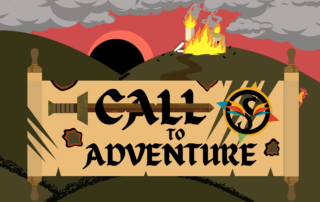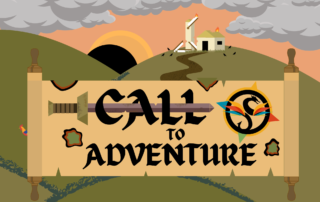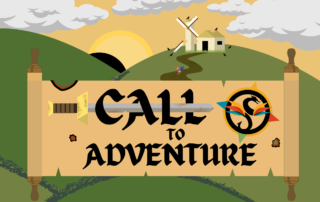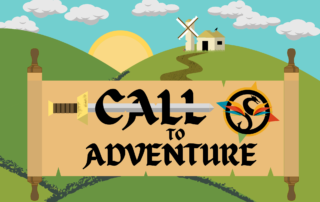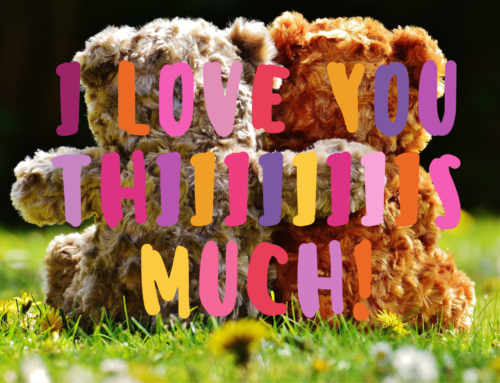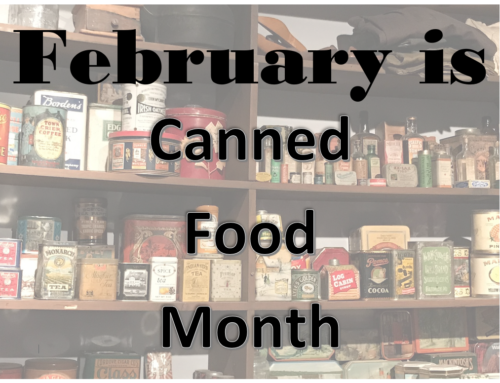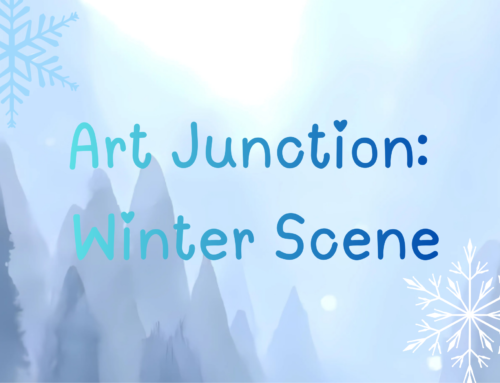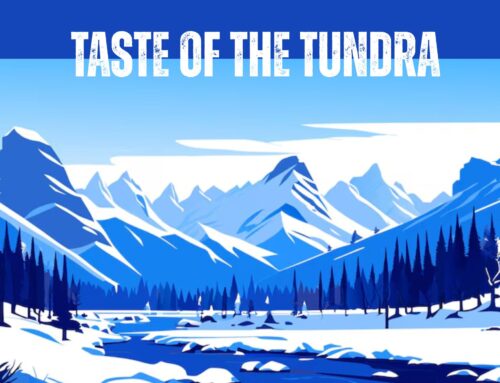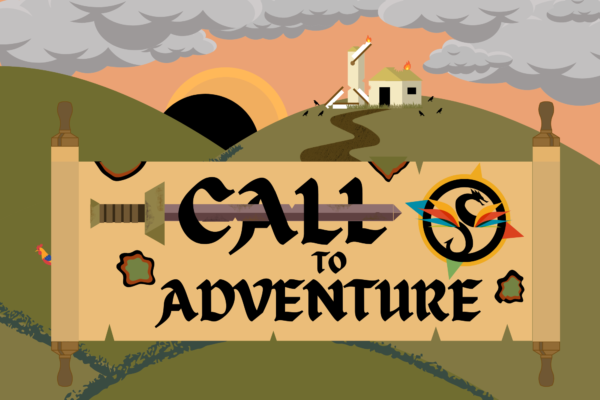
Call to Adventure: There’s Not Mush-room in this Fairy Tale
Your party has been lost for 3 days. During your travels through the Shaded Woods, you made a wrong turn at a fork in the path. After being bitten by swarms of gnats, almost losing one of your boots in a bog, and being chased by a flock of rabid vultures, you realize that you are lost. You are dangerously low on supplies and are on the verge of going hungry. While the farmer’s rooster is a prospective source of nutrients to help you survive for another few days, you shake the thought out of your head and march forward.
You end up in a clearing and spot some mushrooms. You hobble towards them and stare intensely. Each mushroom’s cap is bright red with large white spots on them. The stalk is white and about as long and thick as your thumb. They’re all arranged in a large circle, which does not strike you as weird in your delirious, hungry state.
You have to make a decision.
Your first option is walking away and hoping there is a town or food source to help you get to your destination. This runs the risk of you being completely wrong about finding something to eat and not surviving the journey out of the woods.
Your second option is to try a mushroom and hope it is edible. If it is edible, great – you will live to see Castor. If it is not, then you run the risk of one of two things happening: you will either suffer horribly from eating a toxic mushroom and most likely not survive the journey out of the woods, or you will lose your mind completely and – again – most likely not survive the journey out of the woods. You remember a traveling witch hunter telling you about a town in the northeast called Melas that had a fungus poisoning issue recently. Apparently, some young people were dancing around and muttering gibberish, so the superstitious townspeople called him in to investigate. During the trial, the prosecution used a large scale, a duck, and some wood to try to figure out what was going on with them. Knowing the trial was a complete sham, the witch hunter told the judge to check the rye storage for a toxic fungus growing in their stores. Sure enough, the townspeople found the fungus to be the cause of the hysteria. No one got hurt, but the three sisters who got sick from the fungus became famous for starring in a play about three witches running amok in Melas, which was, basically, an exaggerated version of their story. You remember hearing about a sequel to that recently, but you shake your head and focus on the task at hand.
You decide not to try the mushrooms yourself. However, you see that the rooster is staring at the mushrooms hungrily, and you wonder if the rooster could smell if the mushrooms were safe to eat. If the rooster eats a piece of the mushroom and is perfectly fine after a few hours, it might be edible. If the rooster tries it and kicks the bucket, you will still technically have a meal (minus one party member)—sort of a win-win.
You grab the mushroom at the base of the stem and pull up. You hear a squeaky yell coming from the mushroom, causing you to drop it. The mushroom sits up and sprouts legs and arms. It stands and looks at you (or at least you assume it is looking at you since it does not have a face).
“Don’t you know it’s rude to pick up a mushroom when they’re dormant?” the mushroom squeaks.
You apologize profusely to the mushroom creature.
“No harm, no foul. But say, you might be able to help us.” It stamps its little foot a few times. The other mushrooms in the circle pop up out of the ground and walk toward the first mushroom creature.
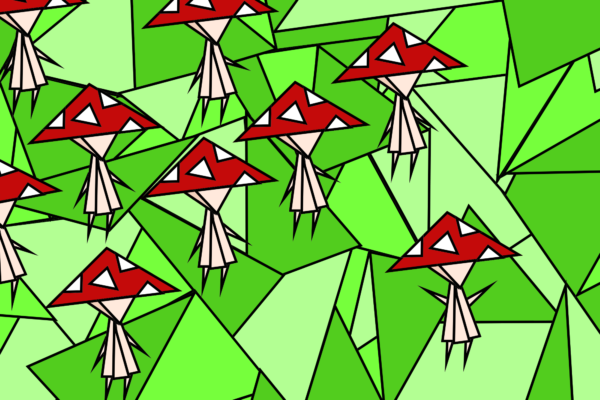
“We’re mycellites. We’re all native to this forest and are children of the Great Mushy One, who we all spawned from. We all have inherent magical abilities, but the one thing we’re good at is teleportation magic. Together, we can teleport small magical beings to another world of their choosing. Normally, we just teleport others freely if they ask us nicely. However, a group of faeries have taken over this territory and offered us protection from wild animals if we give them unlimited transportation back to their home world. It seemed like a good idea seeing as we cannot defend ourselves.”
The mushroom waggles its arms sadly to show its inability to defend itself. The other mushrooms do it in unison, which was both strangely cute and weird at the same time.
“We speak as a hive mind, so we were all in agreement with this deal. However, when we agreed to the terms, the faeries organized us into fairy rings and asked us nicely to stay put. Due to our nature, we have to agree to anything when someone asks us nicely. We want to move around and walk the forest to do the bidding of the Great Mushy One. Can you speak to the leader of the faeries to let us walk around and build our civilization? We will be eternally grateful and will share the wealth of the forest with you.”
Because they are so cute (and since you’re starving), you agree to the deal.
The mycellites hold hands and form a circle around you and the rooster.
“We will now send you to the realm of the faeries. Please keep your hands and feet in the middle of the circle at all times.”
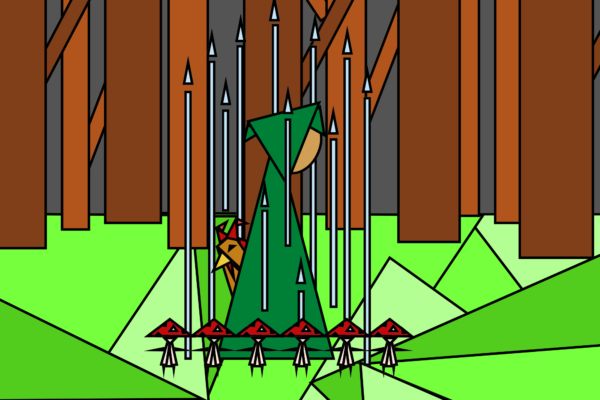
They all jump, and you suddenly find yourself in the middle of a flowery field full of farms filled with floral fauna. The farms are made of vines and flowers, with plant-like animals grazing the fields like livestock. They are being tended by small, human-like creatures with wings. They must be faeries.
One of the faeries spots you and flies toward you.
“Greetings, human. It’s rare to see one of your kind here. Are you seeking someone?”
You ask to meet the leader of the faerie colony. The fairy points at a large flower-shaped house nearby.
“The one you seek is there. Please mind your manners.”
The fairy flies away and goes back to tending its flock. You walk towards the flower mansion. It’s about as tall as you, and you stare at it for a moment, wondering how to get inside and how you are going to fit in. The mansion suddenly blooms, revealing a sharply-dressed fairy sitting at an ornate desk. They are petting a tiny flower that meows like a cat. They are flanked by two intimidating faeries in formal clothing.
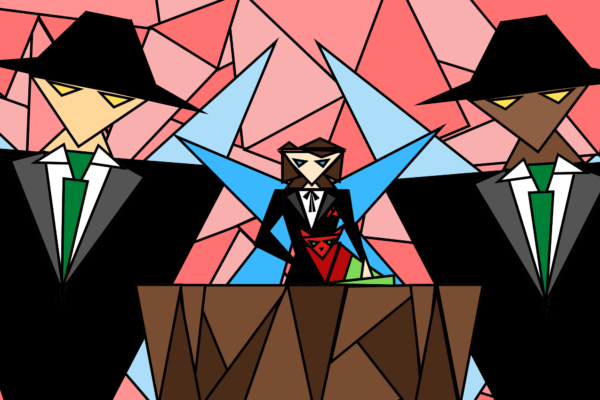
The fairy at the desk beckons you to speak. You introduce yourself and talk about the mycellites’ wish to walk freely around the forest. The fairy raises its hand slightly, signaling that you should stop talking.
“Now you come to me and say Donna Carnation give me justice. But you don’t ask with respect. You don’t offer friendship. You don’t even think to call me Fairy Godmother. Instead, you come into my home on the day of the harvest festival, and you ask me to let the mycellites roam the forest unprotected.”
You remember that the mycellites must listen to any requests when asked nicely. You explain to the Fairy Godmother the culture of the mycellites and ask her if she was aware of this.
“I did not know this. I just asked them for their help with transporting our harvest and ended my request by saying, ‘Please.’ I do not wish for the mycellites to be bound to us out of duty. They are free spirits that deserve respect as much as they respect my people. Inform them that they are not bound to us, and we just wish to live in harmony with them. We only ask that they assist us if they are able and that we will protect them with our lives for their generosity. Anyone that wishes harm to the mycellites will find themselves swimming with the goldfish…”
You stare blankly in response to that very ominous phrase.
The Fairy Godmother notices your confusion.
“You misunderstand. I mean no harm to anyone. We have a getaway resort near a lake where individuals can swim with our therapy goldfish to teach them that violence is not the answer. In order to understand ourselves, one must first live in harmony with nature.”
You stare blankly in response to that unusually profound saying.
The Fairy Godmother notices your blank stare.
“Our business is concluded. I thank you for your explanation and understanding. You are now an honorary member of our family. Call upon us when you need us and one day, I’ll call upon you to do a service for me.”
The flower mansion closes, and you walk away, wondering if you should feel relieved that it went better than expected or afraid that a “service” will be asked of you in the future. You look around the field and spot more red and white mushrooms and walk towards them. When you approach, the mycellites pop out of the ground and hobble toward you. They hold hands and form a circle around you. They jump in unison, and you find yourself in the middle of the Shaded Woods near the mycellites you saw earlier.
One of the mycellites spots you and asks you about what happened. You explain the misunderstanding and tell them they are free to roam the forest under the protection of the faeries.
“You have saved us from eternal confusion and for that, we are grateful. To repay you, we shall provide you with a ration of edible mushrooms for your journey and show you how to harvest more so you shall never starve. We shall also teleport you to the outside of the Shaded Woods, so you are closer to your destination. We thank you, oh Great Fleshy One. Our civilization will sing songs of your heroism today.” They all bow at you in unison, which is both endearing and sort of weird.
A few mycellites hand you a bag of mushrooms, and another tells you about the difference between safe and unsafe mushrooms. The words “Mushroom Gathering Skill Unlocked” and “Charisma +3” pop up in your mind, but you wave them off as confusion caused by a bad mushroom you just ate that got mixed in the bag.
You thank your new followers and they form a ring around you. They jump in unison, and you find yourself outside of the woods and back en route to Castor.
You look at the rooster, and you both wonder if that whole series of events actually happened or if you were so hungry that you dreamed it up from eating a weird mushroom you picked up at some point in the forest. Neither of you dwells on it much. You take a bite out of a mushroom from your bag and continue on your journey, hoping the next destination does not involve more mushrooms.
The History of Medieval Food and Drink:
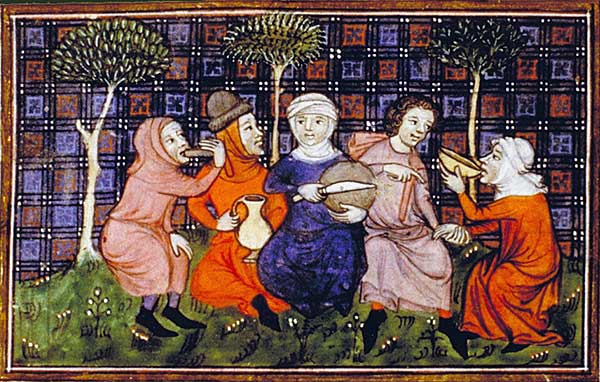
Food during the Middle Ages varied widely between social classes. Nobles often ate fresh meat, fish, vegetables, and fresh fruit. These would often be flavored with exotic and valuable spices like caraway, nutmeg, ginger, and pepper. Many imported goods like sugar and dried fruits (from the Middle East and the Caribbean) were incredibly expensive and made it only accessible by richer families. Banquets and grand feasts were often held by noblemen to make a show of their wealth and make alliances with guests. Jellies, pies, fritters, stews, roasted meats and vegetables, and other treats were served, often presented in very extravagant ways. Exotic meats like peacocks, whales, seals, and porpoises were also served during these events. Sugar sculptures called sotiltees decorated the banquet tables, often “warning” guests that dinner is coming. They often took the shape of castles, famous figures, animals, and other scenes from stories or fables. These extravagant meals were in stark contrast to the general population and peasantry.
Peasants ate much simpler diets. They still had meat and fish in their diet, but it was seldom fresh. If you lived by the sea, fresh fish was more abundant, but lower classes often had preserved and pickled meats such as bacon, pickled herring, preserved fruits, and other salted items. Cows were abundant but were primarily raised for dairy and milk products, so cheese, curds, and butter were usually eaten by the general population. Most of these foods kept well during travels due to being preserved, salted, or fermented, ensuring that these meals can be kept on trips between towns or long campaigns in military service.
The most abundant food that was eaten was bread. However, white bread was usually reserved for the upper classes due to the quality of wheat and the processing needed to make it. Peasants often ate bread made of rye and barley, which were more common and easier to grow.
Ironically, food eaten by royalty and nobility was often fatty or full of sugar, leading to unhealthy diets compared to the peasants, who usually ate a well-balanced diet. Top that off with manual labor (such as farming) and regular physical activity, and it is safe to say that most commoners were much healthier than their richer counterparts were.
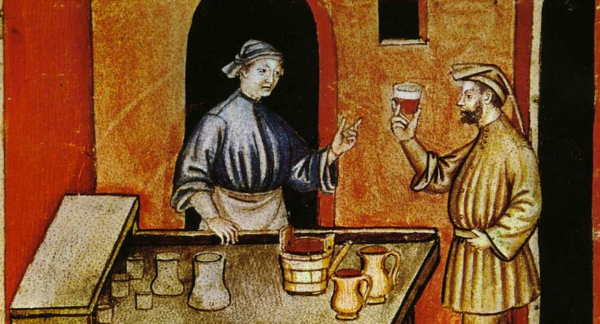
Alcohol was a very common beverage consumed during this time. Due to the dangers of drinking water from a contaminated source, alcohols such as beer, mead, and wines were regularly consumed by diluting them in water, destroying any bacteria or parasites that may be hiding in their drinks. They were also very easy to carry in drinking sacs and containers, making them easily portable drinks for travelers. As more awareness of the importance of hygiene increased over the centuries (as well as the growth of science and technology), filtering and purifying water made it less necessary to add alcohol to it.
Sources:
Take-and-Make Information:
Have you wanted to become the hero of your own story? Then join the Adventurer’s Guild! We will provide you with the tools you need to survive in any situation! This month, we went over food and drinks and how people in the Middle Ages dined at home and on the road. Pick up your “Adventurer’s Travel Bag (with Traveling Utensils)” Take-and-Make* at the La Plata Branch Library from a member of the Traveling Bard’s Guild at the Circulation Desk. In exchange for the Take-and-Make, the Bard will request payment in poetry, so write them a small poem that they can use in one of their songs. Here is an example:
A Poem of Food by Anonymous
I once came home with some bread.
But realized I ran out of spread.
I ran to the store,
And picked up some more,
So now I can sleep soundly in bed.
*Disclaimer: We at the Adventurer’s Guild cannot guarantee the effectiveness of these bags at stopping animals from taking your food. A guild member has reported seeing a local story-telling raccoon in a wizard hat running away with another member’s bag recently. Please place food items in a safe place when out in the wilderness and report any suspicious food bag-related incidents to a member of the local chapter of the Guild.

